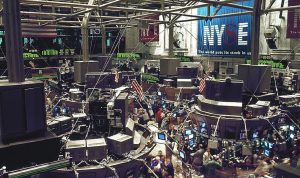Bad Bunny’s Provocative Campaigns Spark Global Reactions, showcasing how this influential artist has not only transformed the music scene but also ignited discussions on social issues through his creative campaigns. His bold approach to addressing topics like gender identity, social justice, and cultural representation resonates with fans worldwide, prompting varied reactions from admiration to controversy.
These campaigns highlight the intersection of art and activism, reflective of a changing cultural landscape where celebrities wield significant influence. Bad Bunny’s ability to engage his audience through provocative imagery and messages encourages a global dialogue, making him a pivotal figure in contemporary discussions surrounding identity and expression.
In the ever-evolving landscape of digital communication, the emergence of Artificial Intelligence (AI) has brought about transformative changes across various sectors, including education, healthcare, finance, and entertainment. This discourse aims to explore the profound implications of AI technology on our daily lives, the potential benefits it offers, and the challenges it presents. As we delve into the intricacies of AI, we must navigate through its definition, applications, ethical considerations, and the future trajectory of this groundbreaking technology.To begin with, Artificial Intelligence can be defined as the simulation of human intelligence processes by machines, particularly computer systems.
These processes include learning, reasoning, problem-solving, and understanding natural language. AI is powered by vast amounts of data and sophisticated algorithms that allow machines to perform tasks that typically require human intelligence. This definition, while foundational, encompasses a wide array of technologies, from simple rule-based systems to complex machine learning models and neural networks.One of the primary applications of AI is in the realm of education.
Adaptive learning platforms powered by AI can personalize educational experiences for students, tailoring content to their individual learning styles and paces. For instance, platforms like Khan Academy and Coursera leverage AI to assess a learner’s progress and recommend resources suited to their needs. This personalized approach not only enhances the learning experience but also fosters engagement and motivation among students.
Moreover, AI can aid educators by automating administrative tasks, such as grading and scheduling, allowing them to focus more on teaching and interacting with students.In healthcare, AI’s potential is even more pronounced. From diagnostic tools that analyze medical images to predictive algorithms that assess patient outcomes, AI is revolutionizing how healthcare professionals approach patient care. For example, AI-driven applications can detect anomalies in radiology images with remarkable accuracy, often surpassing human radiologists.
Additionally, AI can streamline administrative processes, such as patient record management and appointment scheduling, thereby reducing costs and improving efficiency in healthcare systems. However, the integration of AI in healthcare also raises ethical questions regarding data privacy and the potential for bias in decision-making processes.In the finance sector, AI technologies are reshaping how we manage our finances, make investments, and assess risks.
Fraud detection systems utilize machine learning algorithms to identify suspicious transactions in real-time, significantly reducing financial losses for institutions and consumers alike. Furthermore, robo-advisors—automated platforms that provide investment advice—are making financial planning more accessible to a broader audience. By analyzing market trends and individual financial goals, these AI systems offer tailored investment strategies. However, dependence on AI in finance also necessitates a careful examination of its implications, particularly in terms of transparency and accountability.The entertainment industry, too, is experiencing an AI-driven transformation.
Streaming platforms like Netflix and Spotify employ AI algorithms to analyze user preferences, curating personalized content recommendations that enhance user experience. AI-generated content, from music to visual art, is also gaining traction, raising questions about authorship and creativity. As AI capabilities continue to expand, the lines between human creativity and machine-generated works are becoming increasingly blurred. This evolution prompts a rethinking of intellectual property rights and the value we place on human artistry.While the benefits of AI are numerous, it is crucial to address the challenges and ethical considerations that accompany its proliferation.
One of the most pressing concerns is data privacy. As AI systems rely on vast amounts of data, often including personal information, ensuring the security and ethical use of this data is paramount. Regulations like the General Data Protection Regulation (GDPR) in Europe have been implemented to safeguard individuals’ privacy, but the rapid pace of AI development often outstrips regulatory frameworks.Another significant challenge is the potential for bias in AI algorithms.
Machine learning models are trained on existing data, which may contain inherent biases related to race, gender, or socioeconomic status. If not addressed, these biases can perpetuate discrimination and inequality in various sectors, from hiring practices to law enforcement. Creating fair and unbiased AI systems requires a concerted effort from developers, policymakers, and society at large to ensure ethical standards are upheld.Moreover, the displacement of jobs due to automation is a concern that cannot be overlooked.
While AI can enhance productivity and create new opportunities, it also poses a threat to certain job sectors, particularly those involving repetitive tasks. The workforce will need to adapt to the changing landscape by acquiring new skills and embracing lifelong learning. Policymakers must also consider measures to support displaced workers and ensure that the benefits of AI advancements are shared equitably across society.Looking ahead, the future of AI is both exciting and uncertain.
As technology continues to advance, we can expect even more innovative applications that enhance our lives. However, this progress must be tempered with careful consideration of ethical implications and societal impacts. Collaboration among technologists, ethicists, and policymakers will be essential in shaping a future where AI serves humanity positively.In conclusion, Artificial Intelligence is a powerful tool with the potential to revolutionize our world.
Its applications in education, healthcare, finance, and entertainment illustrate its far-reaching impact. While the benefits of AI are substantial, we must remain vigilant in addressing the challenges it presents. By fostering an environment of ethical development and responsible use, we can harness the power of AI to create a better future for all. As we navigate this new frontier, it is imperative to prioritize transparency, accountability, and inclusivity in our approach to AI technology.
In doing so, we can ensure that the advancements we make contribute to a more equitable and prosperous society.
Frequently Asked Questions: Bad Bunny’s Provocative Campaigns Spark Global Reactions
What motivates Bad Bunny’s provocative campaigns?
Bad Bunny is motivated by a desire to challenge societal norms and advocate for marginalized communities, using his platform to promote awareness and understanding.
How have fans reacted to his campaigns?
Fans have shown a mix of admiration and criticism, with many appreciating his bold stance on important issues while others debate the effectiveness of his methods.
Are his campaigns purely artistic or do they have deeper meanings?

His campaigns often blend artistic expression with deeper social messages, aiming to provoke thought and encourage conversations about pressing societal topics.
What impact do his campaigns have on global discussions?
Bad Bunny’s campaigns contribute significantly to global discussions by bringing attention to issues such as gender equality, race, and representation, inspiring fans to engage in activism.
Is Bad Bunny’s approach to campaigns common among artists?
While some artists engage in social commentary, Bad Bunny’s approach is notably bold and direct, setting him apart in the music industry.






